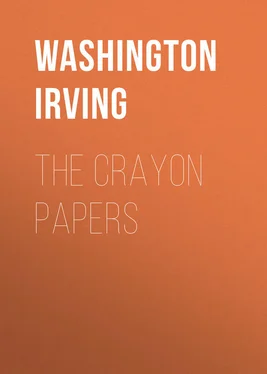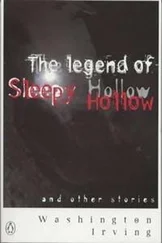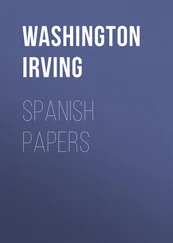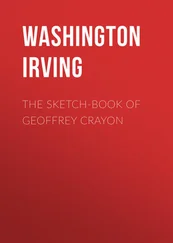Washington Irving - The Crayon Papers
Здесь есть возможность читать онлайн «Washington Irving - The Crayon Papers» — ознакомительный отрывок электронной книги совершенно бесплатно, а после прочтения отрывка купить полную версию. В некоторых случаях можно слушать аудио, скачать через торрент в формате fb2 и присутствует краткое содержание. Жанр: foreign_antique, foreign_prose, на английском языке. Описание произведения, (предисловие) а так же отзывы посетителей доступны на портале библиотеки ЛибКат.
- Название:The Crayon Papers
- Автор:
- Жанр:
- Год:неизвестен
- ISBN:нет данных
- Рейтинг книги:3 / 5. Голосов: 1
-
Избранное:Добавить в избранное
- Отзывы:
-
Ваша оценка:
- 60
- 1
- 2
- 3
- 4
- 5
The Crayon Papers: краткое содержание, описание и аннотация
Предлагаем к чтению аннотацию, описание, краткое содержание или предисловие (зависит от того, что написал сам автор книги «The Crayon Papers»). Если вы не нашли необходимую информацию о книге — напишите в комментариях, мы постараемся отыскать её.
The Crayon Papers — читать онлайн ознакомительный отрывок
Ниже представлен текст книги, разбитый по страницам. Система сохранения места последней прочитанной страницы, позволяет с удобством читать онлайн бесплатно книгу «The Crayon Papers», без необходимости каждый раз заново искать на чём Вы остановились. Поставьте закладку, и сможете в любой момент перейти на страницу, на которой закончили чтение.
Интервал:
Закладка:
This novel finished, I replaced it in my sisters' apartment, and looked for others. Their stock was ample, for they had brought home all that were current in the city; but my appetite demanded an immense supply. All this course of reading was carried on clandestinely, for I was a little ashamed of it, and fearful that my wisdom might be called in question; but this very privacy gave it additional zest. It was "bread eaten in secret"; it had the charm of a private amour.
But think what must have been the effect of such a course of reading on a youth of my temperament and turn of mind; indulged, too, amid romantic scenery and in the romantic season of the year. It seemed as if I had entered upon a new scene of existence. A train of combustible feelings were lighted up in me, and my soul was all tenderness and passion. Never was youth more completely love-sick, though as yet it was a mere general sentiment, and wanted a definite object. Unfortunately, our neighborhood was particularly deficient in female society, and I languished in vain for some divinity to whom I might offer up this most uneasy burden of affections. I was at one time seriously enamored of a lady whom I saw occasionally in my rides, reading at the window of a country-seat; and actually serenaded her with my flute; when, to my confusion, I discovered that she was old enough to be my mother. It was a sad damper to my romance; especially as my father heard of it, and made it the subject of one of those household jokes which he was apt to serve up at every meal-time.
I soon recovered from this check, however, but it was only to relapse into a state of amorous excitement. I passed whole days in the fields, and along the brooks; for there is something in the tender passion that makes us alive to the beauties of nature. A soft sunshiny morning infused a sort of rapture into my breast. I flung open my arms, like the Grecian youth in Ovid, as if I would take in and embrace the balmy atmosphere. 1 1 Ovid's Metamorphoses, Book vii
The song of the birds melted me to tenderness. I would lie by the side of some rivulet for hours, and form garlands of the flowers on its banks, and muse on ideal beauties, and sigh from the crowd of undefined emotions that swelled my bosom.
In this state of amorous delirium, I was strolling one morning along a beautiful wild brook, which I had discovered in a glen. There was one place where a small waterfall, leaping from among rocks into a natural basin, made a scene such as a poet might have chosen as the haunt of some shy Naiad. It was here I usually retired to banquet on my novels. In visiting the place this morning I traced distinctly, on the margin of the basin, which was of fine clear sand, the prints of a female foot of the most slender and delicate proportions. This was sufficient for an imagination like mine. Robinson Crusoe himself, when he discovered the print of a savage foot on the beach of his lonely island, could not have been more suddenly assailed with thick-coming fancies.
I endeavored to track the steps, but they only passed for a few paces along the fine sand, and then were lost among the herbage. I remained gazing in reverie upon this passing trace of loveliness. It evidently was not made by any of my sisters, for they knew nothing of this haunt; besides, the foot was smaller than theirs; it was remarkable for its beautiful delicacy.
My eye accidentally caught two or three half-withered wild flowers lying on the ground. The unknown nymph had doubtless dropped them from her bosom! Here was a new document of taste and sentiment. I treasured them up as invaluable relics. The place, too, where I found them, was remarkably picturesque, and the most beautiful part of the brook. It was overhung with a fine elm, entwined with grapevines. She who could select such a spot, who could delight in wild brooks, and wild flowers, and silent solitudes, must have fancy, and feeling, and tenderness; and with all these qualities, she must be beautiful!
But who could be this Unknown, that had thus passed by, as in a morning dream, leaving merely flowers and fairy footsteps to tell of her loveliness? There was a mystery in it that bewildered me. It was so vague and disembodied, like those "airy tongues that syllable men's names" in solitude. Every attempt to solve the mystery was vain. I could hear of no being in the neighborhood to whom this trace could be ascribed. I haunted the spot, and became daily more and more enamored. Never, surely, was passion more pure and spiritual, and never lover in more dubious situation. My case could be compared only to that of the amorous prince in the fairy tale of Cinderella; but he had a glass slipper on which to lavish his tenderness. I, alas! was in love with a footstep!
The imagination is alternately a cheat and a dupe; nay, more, it is the most subtle of cheats, for it cheats itself and becomes the dupe of its own delusions. It conjures up "airy nothings," gives to them a "local habitation and a name," and then bows to their control as implicitly as though they were realities. Such was now my case. The good Numa could not more thoroughly have persuaded himself that the nymph Egeria hovered about her sacred fountain and communed with him in spirit than I had deceived myself into a kind of visionary intercourse with the airy phantom fabricated in my brain. I constructed a rustic seat at the foot of the tree where I had discovered the footsteps. I made a kind of bower there, where I used to pass my mornings reading poetry and romances. I carved hearts and darts on the tree, and hung it with garlands. My heart was full to overflowing, and wanted some faithful bosom into which it might relieve itself. What is a lover without a confidante? I thought at once of my sister Sophy, my early playmate, the sister of my affections. She was so reasonable, too, and of such correct feelings, always listening to my words as oracular sayings, and admiring my scraps of poetry as the very inspirations of the muse. From such a devoted, such a rational being, what secrets could I have?
I accordingly took her one morning to my favorite retreat. She looked around, with delighted surprise, upon the rustic seat, the bower, the tree carved with emblems of the tender passion. She turned her eyes upon me to inquire the meaning.
"Oh, Sophy," exclaimed I, clasping both her hands in mine, and looking earnestly in her face, "I am in love."
She started with surprise.
"Sit down," said I, "and I will tell you all."
She seated herself upon the rustic bench, and I went into a full history of the footstep, with all the associations of idea that had been conjured up by my imagination.
Sophy was enchanted; it was like a fairy tale; she had read of such mysterious visitations in books, and the loves thus conceived were always for beings of superior order, and were always happy. She caught the illusion in all its force; her cheek glowed; her eye brightened.
"I daresay she's pretty," said Sophy.
"Pretty!" echoed I, "she is beautiful." I went through all the reasoning by which I had logically proved the fact to my own satisfaction. I dwelt upon the evidences of her taste, her sensibility to the beauties of nature; her soft meditative habit that delighted in solitude. "Oh," said I, clasping my hands, "to have such a companion to wander through these scenes; to sit with her by this murmuring stream; to wreathe garlands round her brows; to hear the music of her voice mingling with the whisperings of these groves; to – "
"Delightful! delightful!" cried Sophy; "what a sweet creature she must be! She is just the friend I want. How I shall dote upon her! Oh, my dear brother! you must not keep her all to yourself. You must let me have some share of her!"
I caught her to my bosom: "You shall – you shall!" cried I, "my dear Sophy; we will all live for each other!"
Читать дальшеИнтервал:
Закладка:
Похожие книги на «The Crayon Papers»
Представляем Вашему вниманию похожие книги на «The Crayon Papers» списком для выбора. Мы отобрали схожую по названию и смыслу литературу в надежде предоставить читателям больше вариантов отыскать новые, интересные, ещё непрочитанные произведения.
Обсуждение, отзывы о книге «The Crayon Papers» и просто собственные мнения читателей. Оставьте ваши комментарии, напишите, что Вы думаете о произведении, его смысле или главных героях. Укажите что конкретно понравилось, а что нет, и почему Вы так считаете.












